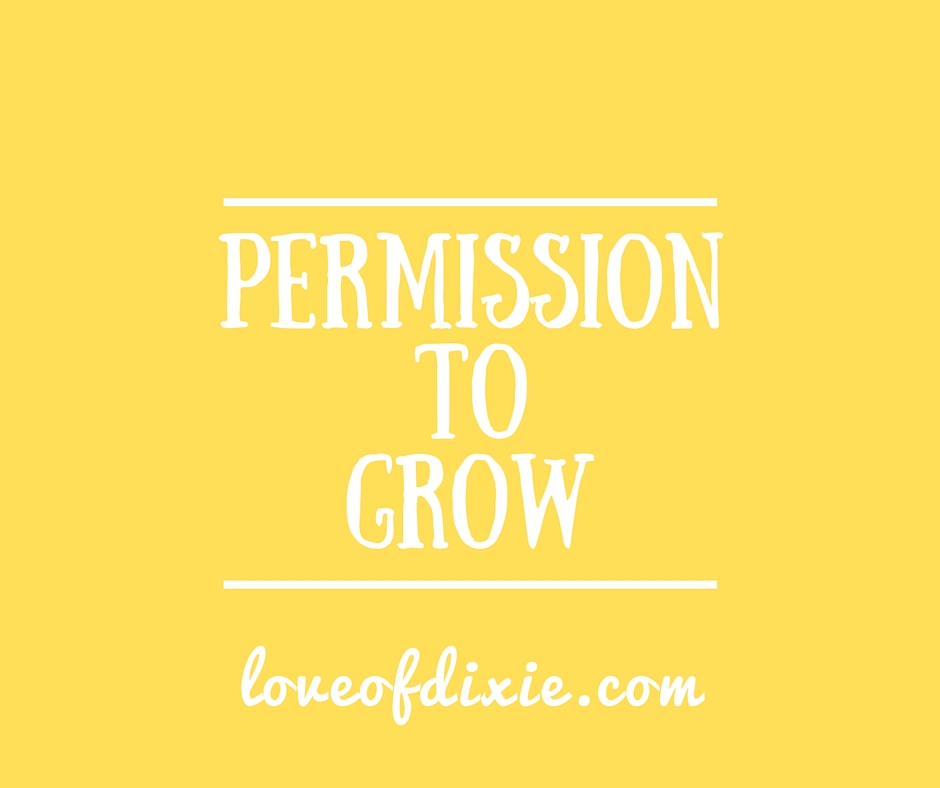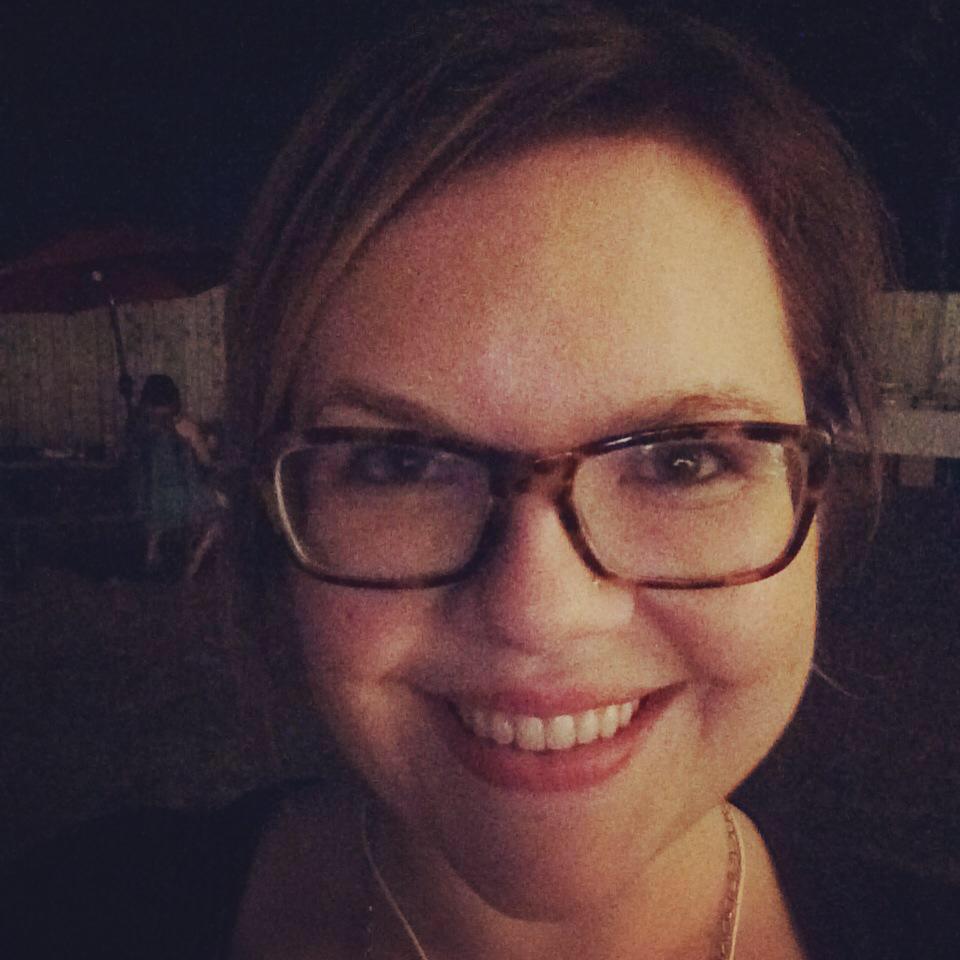My talented writer and editor friend, Deidre Price, sent me this raw, honest guest post this week. It arrived at just the right time. Her beautiful submission for this month’s “Permission to Grow” series, about recovering from her father’s death, deeply touched my wounded heart.
I am living in survival mode after losing my maternal grandfather somewhat unexpectedly on Mother’s Day.

Permission to grow
How to bloom in the dark
When my father died on Christmas Day three years ago, I wasn’t sure what to do with all the odds and ends he left behind.
A born packrat, I grew up in the ‘80s in what my mother deemed a too-small house with ambiguous names for mystery rooms like “the hall closet,” which was filled, floor to ceiling with board games and every towel we’d ever owned, even the ones that frayed until they might pass for Aladdin’s magic carpet or Animal from the Muppet Babies, and “the storage room” so full the outside exit door was sealed shut. Its contents included a ceramic sombrero chips-and-dip serving dish; several Christmas tree stands, each new one bought when we could not find last year’s; stray records long-separated from the player; and fishing poles with tackle boxes I cannot recall ever using past the age of five.
Something between gratitude and fear of poverty kept my mother from throwing things away, and something between perfectionism and the shadow of death cast by competing Martha Stewart and Southern Living magazine stacks kept my father squirrelling things to the car to give away golf clubs, artwork, game systems, electric pianos, and grill sets to anybody but us. The exports sometimes included his money. More often, it was his time—a Saturday here, a Sunday there. Later, weekends and full vacations in pairs.
Looking back, my mother and father were more alike than unalike—both trying to keep us safe from something and both frantic about it. The only difference was the currency they chose.
My careful mother did not want to be rushed when my father passed away, so in the days that separated his passing from his burial, we began the endless sorting of objects—the strangest material reconciliation. I might as well have been Egyptian as fixated on his life’s leftovers as I was: What matters most? I wondered. What stays? What goes? And what to put in the sarcophagus?
Only there was no sarcophagus.
Okay, maybe I was the sarcophagus. And these objects weren’t really objects at all. What of his would I keep with me now that he was gone? What should I choose to bury since the ground was open anyway?
I helped with his office and found things I did not want to find. I suppose this is what happens when a person dies in a hurry. His story quickly became like that old hall closet full of towels with so many loose strings. When you’re folding laundry, they seem too good to throw away, but you’d still rather the company didn’t see.
I was half company, half family in those days, discovering but owning all at the same time—needing to conceal but wanting the air to get to the open wound so that it had a shot at healing some day.
I began my own hoarding.
Like my mother with her makeup and my architect father with his blueprints, I secured my own borders with pens and paper so that I could control the narrative. I stockpiled sentences that started with he instead of I. I made weapons out of words and became a human label maker.
I held everything in my head at first, but it soured my stomach, so I tried burying the good and piling hard words like stones in my pockets. This also failed. It was as if I were Virginia Woolf on her darkest day with an ill urgency for that longest walk into the water only to be weighed down and drowned by her own intentional heaviness and carried off somewhere until someone found her and had to begin sorting through all her own odds and ends.
When the words got too heavy to carry anymore, I started putting them on paper: first the tiny memories and then the big. I couldn’t pray because I could not stand to listen. I wrote so that I didn’t have to even try.
In the meantime, the odds and ends piled up—and in such unexpected ways. When I was a kid and heard about death, I imagined sweaters and shoes being carried to the Waterfront Mission. This was not the face of my aftermath. He’d left an electronic wake I didn’t expect, mental imprints I couldn’t iron out.
My fingers kept dialing a disconnected line whenever I wanted to check the best route to Atlanta. There were emails I couldn’t delete because he wrote out words like “Love” and “Dad.” And there were voicemails with recordings of a voice I wouldn’t hear again.
There were usernames and passwords and appointments. Spare dates he left behind for birthdays and anniversaries. What was I to do with all these days I’d recorded and observed as though I were an Orthodox Something in praise of him for all these years?
And what of the relatives? When we think of a family tree, we see how, even though we’re all connected to the same trunk, that some of us are on higher, thinner branches than others. We see how all it takes is one hard pull to break a branch that’s the only thing connecting the leaves to the roots. I’d seen divorce. I’ve seen how family could turn into company and then shortly into strangers, the kind of people you check in on through a carefully phrased Google Images search.
As determined as I was to sort what remained of my father, mostly within myself, I made bad decisions in spite of it, turning inward instead of outward—again, loading those pockets to keep me grounded and sure about what I knew to be true about him, as though sureness would heal faster than forgiveness. It won’t.
Love, it turns out, is warmer than truth.
Community crowded me in necessary, holy ways.
My life was situated inside communities of artists and writers. At every figurative corner, they met me with bandages and salve and just started layering love on top of love because this is what they do.
Editing among friends became near-therapy, and it turned out I had prayers all along, written into the lines of these poems: occasional questions, cathartic confessions, ugly-cry pleas for help. It was all there—every spelling bee, every T-ball game, every construction site, down to the dinner table.
I’m not out of any woods yet. But it recently occurred to me that we probably spend about half our lives getting hurt and the other half recovering, and if this is true, I have so many good days ahead with room for community and conversation, room for poetry and prayers, time for new outgrowth on that broken family tree, and time for friends, casseroles, and storytelling—my own Florida trinity. And the mere promise of this is enough.
It has since occurred to me that while we all must one day die, leaving behind so many odds and ends in a wake of padlocked emails and phone calls we can never answer, that we don’t all die at once. And as grim as it still may be, I think it’s also enough for me most days that I get to stay behind and be the one to do the hard sorting while I spend my days in the company of all my other lucky living.
It’s not about appearances. It’s about reality.
To be among the lucky living means to still have the privilege of voice and the deep, deep honor of shouldering one another’s burdens, of caring for one another the way Christ loved us—hard and madly and anyway.
Yes, even in hall closets and storage rooms and desk drawers.
We will fray, but we will keep—and, if we’re brave, even pull ourselves out for when company comes.

Deidre Price
Deidre Price, mama of three and lit Ph.D., is the author of Lie/Lay/Lain: The Body in Tenses. Her most recent work appears in Boxcar Poetry Review and The Penwood Review. She serves as Professor of English at Northwest Florida State College, is Managing Editor of the Blackwater Review, and writes at RogueHomilies.com.

3 replies on “Permission to Grow: How to Bloom in the Dark by Deidre Price”
[…] week’s “Permission to Grow” guest post comes from Kelly Nickerson, mother to two kids on Earth and four in Heaven. The Good […]
Wow, wow, wow. That is some beautiful writing, and I can relate so much! I am still sorting through words: my dad died six years ago and my mom, last October.
Keep writing!
[…] How to Bloom in the Dark by Deidre Price […]